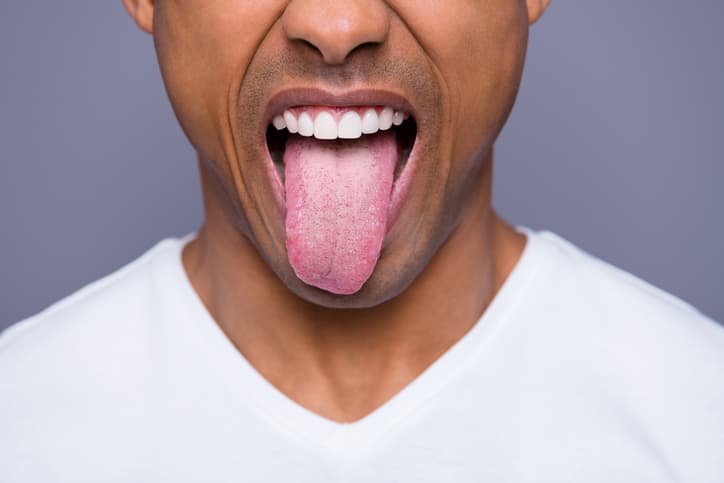 Incidents such as spraining your ankle during basketball are to be expected, but tongue issues still seem to result from the unexpected. Before discussing these, here’s a mouthful of insight into why the tongue is so important.
Incidents such as spraining your ankle during basketball are to be expected, but tongue issues still seem to result from the unexpected. Before discussing these, here’s a mouthful of insight into why the tongue is so important.
Tongue Facts and Functions
The tongue is one of the strongest muscles in the body and plays critical roles in eating and communicating. The frenulum attaches your tongue to the floor of the mouth, explains the National Center for Biotechnology Information, whereas the tip of the tongue (known as the apex) is free to interact with the rest of the mouth. And if you suffer from chronic halitosis (bad breath), check your tongue for excess bacteria, as these germs don’t just hide on your teeth.
How Injuries Occur
Any type of physical impact in sports, be it a tackle in football or a soccer ball to the jaw, can cause the teeth to bite and/or puncture the tongue – and the severity can vary. Because the tongue has a rich supply of blood, however, stopping the bleeding is your first responsibility. Minor cuts should be treated by applying pressure for 15 to 20 minutes using sterile gauze. Once the bleeding subsides, rinse the mouth with saltwater or diluted hydrogen peroxide to help clean the wound.
If It’s More Urgent
A laceration resulting in a severe gash or partial flap needs immediate medical attention. The emergency room is ideal in this case, as the tongue could need sutures or special types of stitches to ensure it heals properly. Keep in mind a tongue injury of this nature can affect overall oral health in a number of ways. Infections can occur quite easily if the wound isn’t kept clean, given the high amount of bacteria the tongue naturally plays home to. Additionally, your ability to swallow and speak clearly can also be compromised, causing you to alter your diet in the short term.
Injury Prevention
Just like an athlete wears pads, helmets and gloves to prevent skeletal injuries, a similar precaution should be taken for your tongue. This starts with a mouth guard, and there are three types: standard store-bought, boil-and-bite and custom. A standard mouth guard is preformed and designed to fit in any mouth. Everyone has a differently shaped mouth, however, so they aren’t as reliable when playing a high-contact activity. Boil-and-bite products are made from plastic that is heated in water. You then bite into it creating a more personal impression of your mouth for a secure fit. Custom-made mouth guards are the best option. Consult your dentist if this is something you may need.
Protecting your mouth (and tongue) from a sports injury is a wise move considering all the necessary functions our tongues perform. But that doesn’t mean you can slack on taking care of your tongue through daily oral care. Be sure not to neglect regular checkups with your dentist, too.
